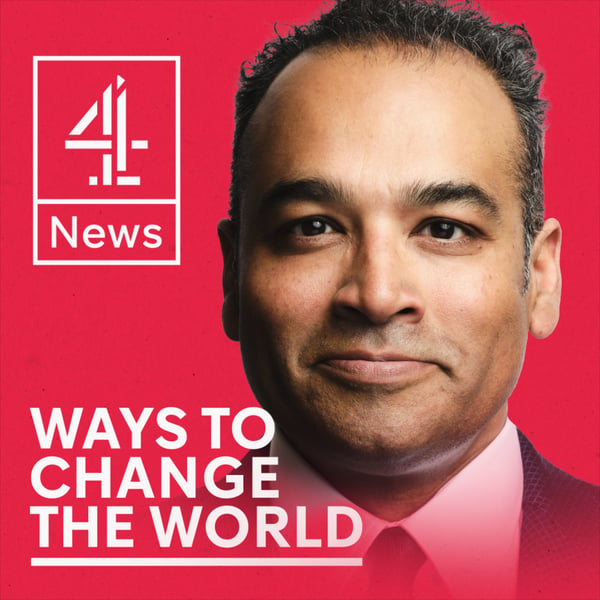Gary Younge on race, Rwanda and a lifetime of writing about Black life
Ways to Change the World with Krishnan Guru-Murthy
Channel 4 News
4.6 • 1.1K Ratings
🗓️ 24 March 2023
⏱️ 33 minutes
🧾️ Download transcript
Summary
“On the television, they were saying we were thieves, that we were raised with no morals”. Growing up Black in 1970s Britain, writer Gary Younge didn’t feel fully accepted - he didn’t even feel British. “Someone would go, “it’s cold today isn’t it, I bet it’s not like this where you come from,” and you’d be like, "I come from just down the road mate!”
His latest book, Dispatches from the Diaspora, looks at a lifetime of writing about Black life, spanning a 30-year career, based in Britain and America, that goes from Mandela to Obama and from Stormzy to Black Lives Matter.
He joins Krishnan Guru-Murthy on Ways to Change the World to discuss significant events that have impacted the Black diaspora, his mother’s influence and what he can teach the next generation of journalists.
Produced by: Imahn Robertson
Transcript
Click on a timestamp to play from that location
| 0:00.0 | Hello and welcome two ways to change the world. I'm Christian Gary Murphy and this is the |
| 0:08.3 | podcast in which we talk to extraordinary people about the big ideas and their lives and |
| 0:12.6 | the events that have helped shape them. My guest this week is the journalist, writer and |
| 0:16.8 | professor of sociology at Manchester, Gary Young, named after the Barbados cricket legends, |
| 0:22.3 | Gary Sobers, his mother came to Britain in the 60s and raised him and his brothers in Stevenage. |
| 0:28.3 | Gary was, like the song says, young, gifted and black and he quickly became a star writer at the |
| 0:34.2 | Guardian. His latest book, Dispatches from the diaspora, spans a 30-year career based in Britain |
| 0:40.2 | and America that goes from Mandela to Obama from Stormsy to Black Lives Matter. Gary, welcome. |
| 0:45.9 | Thanks for having me. Now you've been a columnist and a correspondent. I mean not specifically a |
| 0:51.6 | a black writer, but this is very much your black writing. Why have you framed it like that? |
| 0:58.4 | It's funny how quite often people want to run away from their category, you know. I'm a writer |
| 1:05.4 | that happens to be black. I'm not a black writer and I'm really happy to embrace it. I did my |
| 1:11.6 | second book was a collection of work about America and nobody ever asked me like, why would you |
| 1:18.0 | kind of collect your work about America? And here we are and there is a theme or there are themes |
| 1:22.8 | that run through this. It's not like one looks at Nelson Mandela or Mugabe or Obama or Stormsy |
| 1:30.7 | and things. Well, what are they going to comment? So this was something that it's never been an issue |
| 1:36.8 | for me. The issue for me is if people can only see that. If they can only see me as a black writer |
| 1:45.0 | and they can't see beyond that, but I am that and I don't think it's in the words of Tony Morrison, |
| 1:51.3 | it's not a narrowing category for me. It's a very rich category that involves some of the best |
| 1:57.2 | literature, some of the best music, some of the most amazing politics and wonderful culture in |
| 2:03.9 | the world. Why would I not want to be associated with it? Have you always had that as you do as a |
| 2:08.8 | journalist? I mean that you know you didn't because a lot of people in journalism obviously want to |
... |
Please login to see the full transcript.
Disclaimer: The podcast and artwork embedded on this page are from Channel 4 News, and are the property of its owner and not affiliated with or endorsed by Tapesearch.
Generated transcripts are the property of Channel 4 News and are distributed freely under the Fair Use doctrine. Transcripts generated by Tapesearch are not guaranteed to be accurate.
Copyright © Tapesearch 2025.

